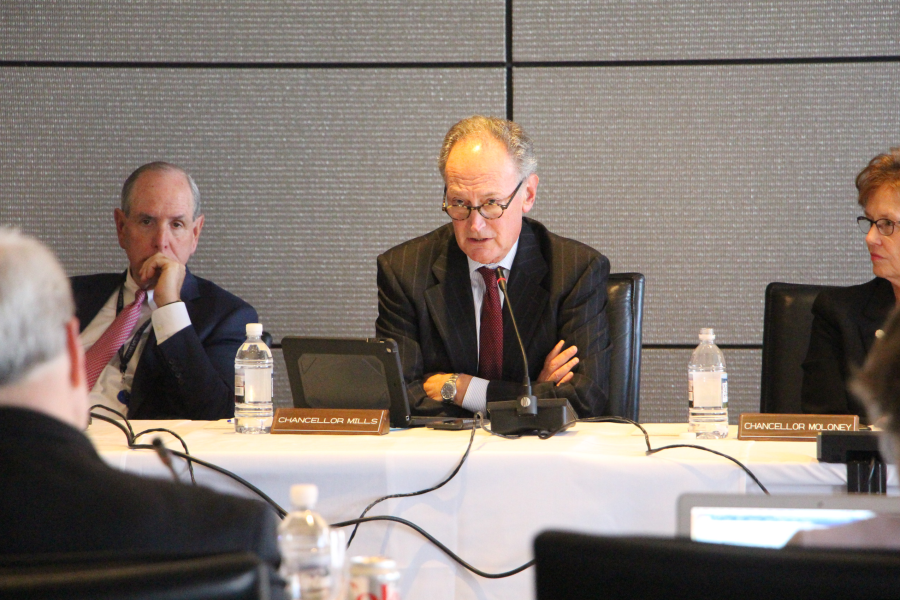The University of Massachusetts Boston’s campus has been rapidly changing as the school begins to shift from being a primarily commuter school toward a residential campus. Some tangible changes include the construction of the new University Hall, Integrated Sciences Complex, the parking garage, and of course, the talk around campus, the residence halls. There have been other, behind-the-scenes changes in progress on campus, too.
On Nov. 15, the UMass Board of Trustees Committee on Academic and Student Affairs convened to discuss a docket of issues. Their discussions concerned multiple issues from around the UMass system including donations to the University of Massachusetts Medical School, a new M.S. in finance at the University of Massachusetts Dartmouth, and finally, a new B.A. program in Sports Leadership at UMass Boston.
This degree proposal is the brainchild of former men’s basketball head coach and Vice Chancellor of Athletics and Recreation Charlie Titus.
Interim Chancellor Barry Mills explained to the committee why UMass Boston wants to add the new sports leadership program: “The leadership undergraduate major is actually something you would show, though not common to the UMass system, is actually quite common in many colleges and universities across America. This is a program that has been reverse engineered because employers in the Boston area have asked that UMass Boston actually create this program so that there are folks from our community that are able to work in sports organizations in the Boston area,” said Mills.
Not all of the board members agreed with Mills’ adamant proposal. James Peyser, the secretary of education for Massachusetts, appointed by Governor Charlie Baker, raised concerns about the capabilities of the new program: “I’m a little bit concerned that there’s a lack of focus on some of the more foundational management, sport management skills, and sort of technical experiences that will make you, coming out, truly employable.”
Peyser’s doubt may have loomed over the meeting briefly, but ultimately, the committee voted unanimously in favor of the new sports leadership program.
It is important to note that while it may seem like a nuanced distinction, there are significant differences between sports management and sports leadership degrees.
Sports management degrees are usually part of a university’s management program, similar to the University of Massachusetts Amherst, and focuses on classes like accounting and data analytics. These programs are usually a bachelor of science degree, not one of the arts.
UMass Boston’s sports leadership degree will involve classes that are typically part of a sports management curriculum, however, the program will have a more interdisciplinary approach: this includes management, philosophy, psychology, data analytics, and many other liberal art fields.
The proposition of the new sports leadership program survived the Board of Trustees meeting with final approval from all members, but it is not out of the woods just yet. The Board will meet again on Dec. 8, and if approved, it will go before the State Board of Education for final approval before the program can begin.
“The meeting here was a positive step,” said Titus. “Usually, this meeting is the hardest step, but once something gets approved here, it usually means it will at every step of the way going forward.”
Mills also seemed excited about the opportunity to start the new program at UMass Boston: “I think what we need now to establish the program is to find a recognized leader in the sports leadership world that can be a driving force behind the program, can fashion it in a way that works well for students, and can foster relationships with local sports teams in order to set our students up for success in the future.”





















































